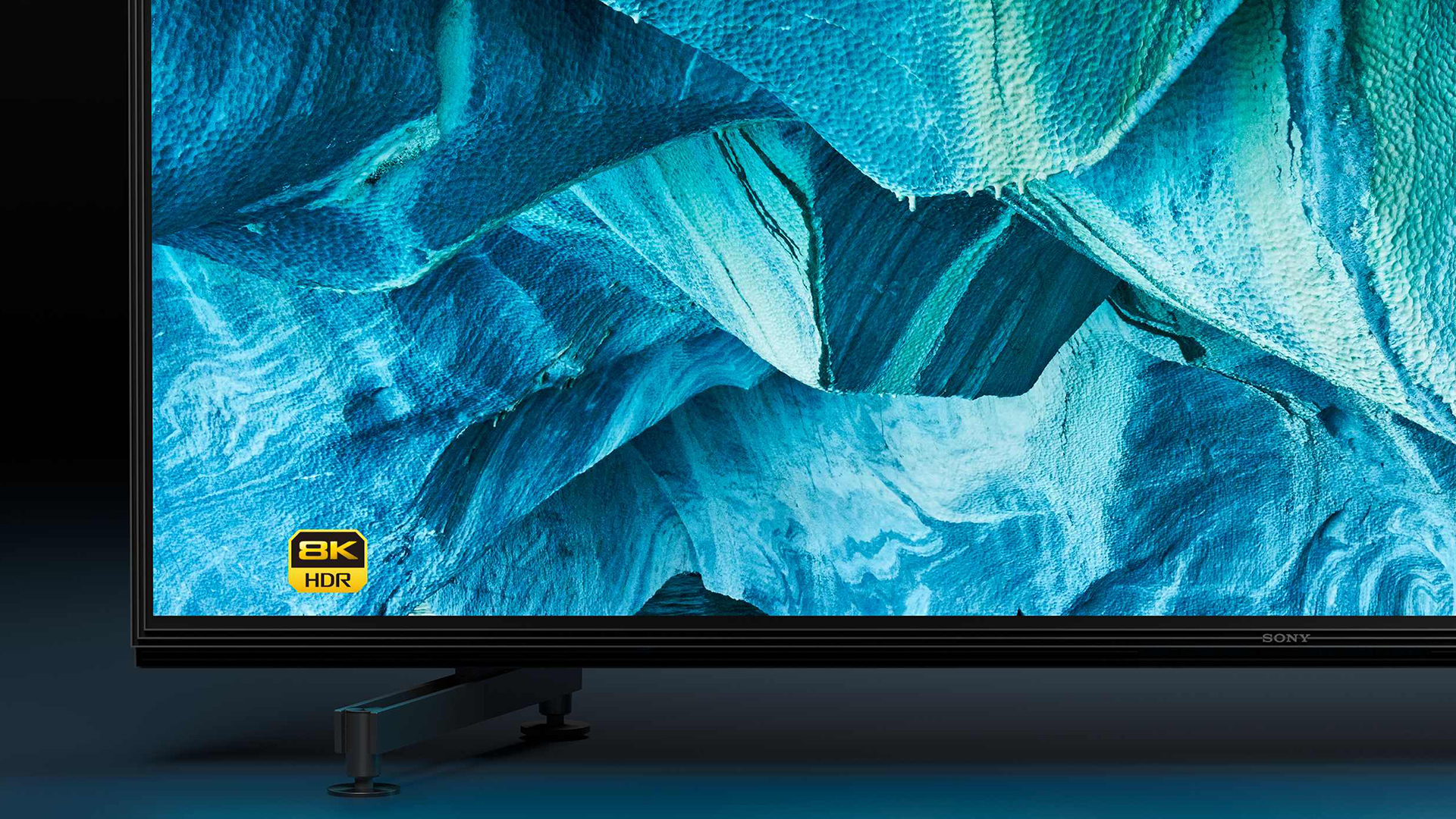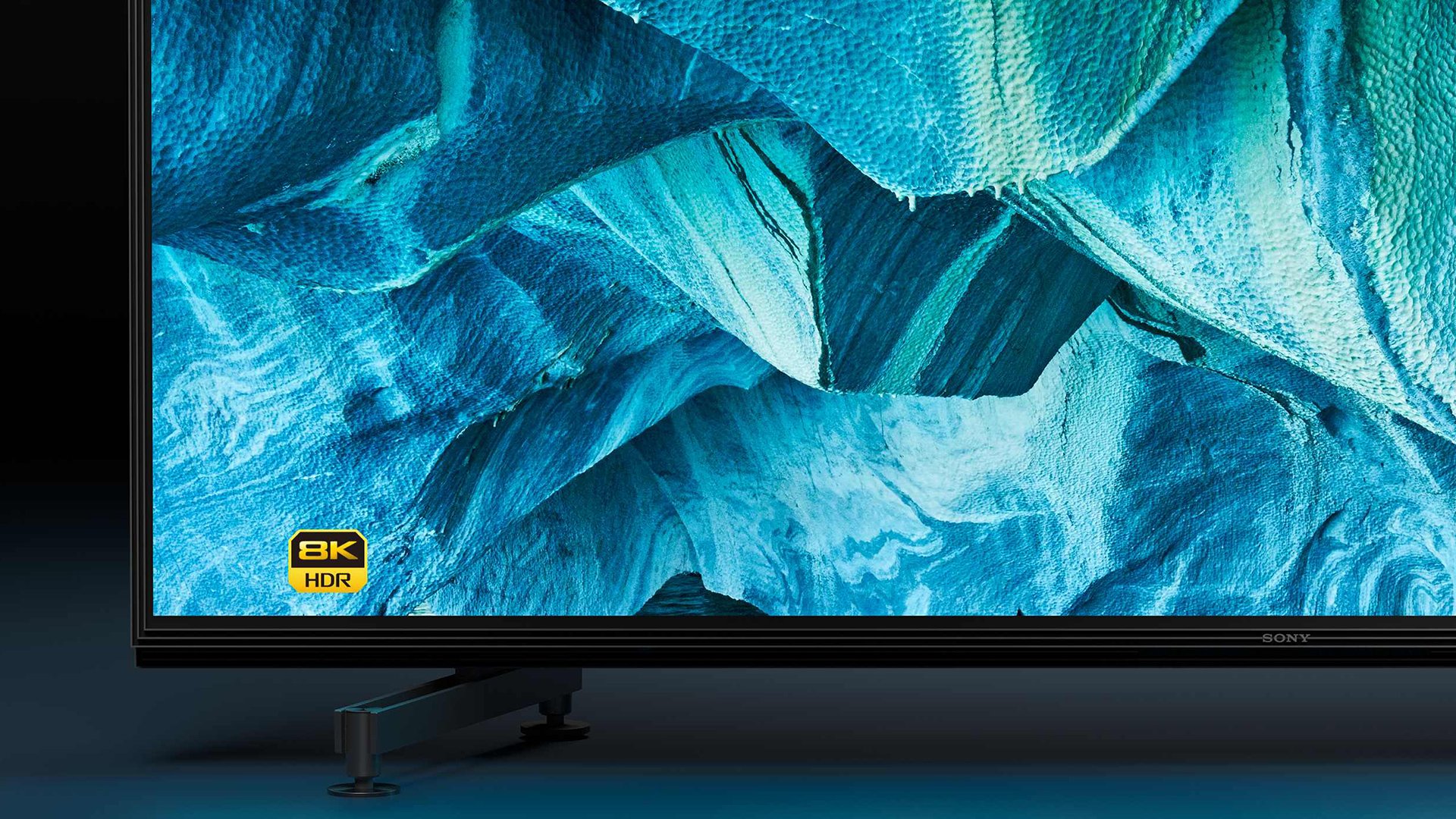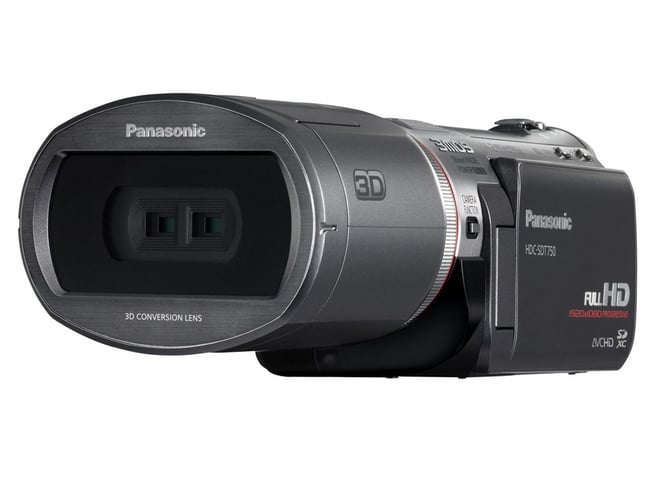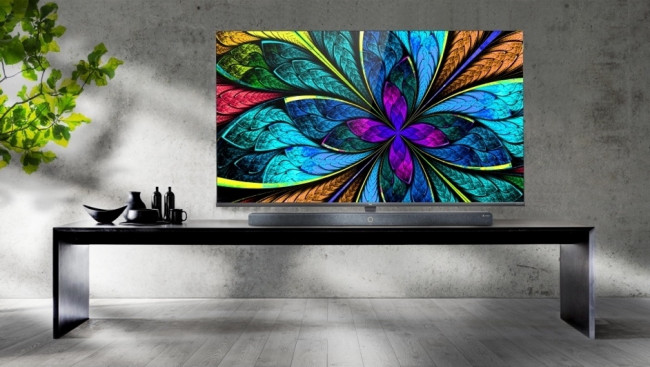

Is 8K going to go the same way as 3D? Some people think it will. But I think it's a false-equivalence. You can't compare the two.
The year before last, we said in RedShark that 8K was just a distant glow on the horizon. Last year we said that it had turned into a sunrise. To continue with this ludicrously poetic language, what will it be this year? Will we be sunbathing in the light of 8K TVs in every living room (they are HDR, after all) or was it all a false dawn?
Of course, nobody actually knows. Manufacturers would love to be able to see into the future. But it's complicated. And the least helpful way to predict the likely outcome is (with genuine respect to all my friends and colleagues who have suggested this) to compare it with what happened to 3D.

You may remember what it was like about eight or nine years ago. 3D was everywhere. We even saw cameras like this popping up from Panasonic (Still available to buy, according to Amazon).
All the big manufacturers were plugging their 3D TVs, and Sony covered the 2010 FIFA World Cup with 25 matches captured in 3D. And yet, nine years later, who even talks about wanting to buy a 3D television?
I really like 3D. I think when it's properly done and shown in a good cinema, it can be breathtaking. When it's badly done, it can be, literally, painful. For me, it never looked quite right on a small screen. It's not that it didn't look 3D, but you had to sit in the right place, at the right distance, and wear special glasses. Very unrelaxing. And then there was the issue that 3D made for a big screen doesn't work very well on a small screen.
It wasn't my intention to rehash the arguments for and against 3D again. That's done and in the past. The point I wanted to make is that I don't think 8K is going to go the way of 3D because I don't think you can compare the two technologies. There is only one, superficial way that the destiny of 8K in the home can be compared to that of 3D, and that it that it might turn out to be something that consumers don't want. But if 3D was a technology that didn't work well in the living room, and which gave results that were arguably not even as good as watching in 2D, 8K is nothing but a big jump in quality and realism. Why wouldn't anyone want that?
Well, right now, there are several reasons why not. But most of these will disappear over time.
Size
Except the question of size. The argument is that people won't have room for 8K screens. I'll deal with that right now.
If you have a room in your house other than a toilet or a broom cupboard where the ceiling is held up by walls, and let's face it, most rooms conform to this specification, then you have space for a wall-sized 8K screen. Indeed, LG's newly announced roll-up TV may be a Trojan Horse-type ploy to get TVs into houses where you otherwise couldn't maneuver a gigantic rectangular screen.
Next, there's a thing about 8K vs 4K that most people don't get, at least explicitly, and it's very simple to understand.
Let's take your current 4K TV (or someone else's, if you haven't got one). Place yourself at the point where you can just see the individual pixels. For most screens, that means you have to sit pretty close. Now, imagine four of those screens arranged in a rectangle. In fact, think of a screen that's exactly four times the area (which would make all the dimensions - vertical, horizontal and diagonal exactly twice those of the single 4K screen). So instead of a 42" diagonal TV you'd have an 82" one.
What would the picture look like? If you fed an 8K signal to the bigger screen, the pixel pitch would be exactly the same: more pixels but with the same density. So, for a given area of the screen, the picture would look the same. Another way to put this is to say that in order to preserve the quality of your 4K screen on the bigger one, you'd need 8K instead of 4K. (Note that there is a built-in inaccuracy here in that the bigger screen would subtend a wider angle and the corners would be further from your eye. Let's live with that for now).
I don't think you can compare the fate of 3D with the future of 8K, whatever happens to 8K. And also, to even compare these two not only irrationally compares a completely different type of viewing technology (3D) with exactly the same type of display but with more pixels.
So I feel that what happens to 8K will be between these two extremes.

At the lower end of expectations, filmmakers are already capturing their work at 8K resolutions. They're doing this for mixed reasons, at least one of which is that they love the "headroom" of having such high resolution available to them. It can capture nuances that lower resolutions can't - and that applies to what's in the scene in front of the camera, as well as the lens: there's no better way to preserve the eccentric nuances of a vintage lens than to capture the look in 8K. But they're also shooting 8K because it looks fantastic when it's downsampled to 4K. Better than it ever could have it were "merely" shot in 4K.
And they're discovering that if you shoot in 8K, you can reframe or recompose the shot, stabilise it and still deliver in greater than 4K with no apparent loss of resolution.
This is a done deal.
And then, this year, we're going to see a significant number of 8K cameras at all levels. While this may seem premature given the immature nature of the 8K ecosystem, there is only one way that this trend is going to go, and that's ever increasing adoption at this end of the workflow.
Again at the lower end of expectations: on the consumer side, the least that will happen is that we will see 8K TVs on the shops. That's already happened. And they are selling, albeit slowly, and presumably to people that don't realise you really do need HDMI 2.1 to see 8K in anything other than 30fps. The sets are really expensive (but only about a third of the price of 3K sets when they first came out, only six years ago) and there's a dearth of 8K material to view. But these are very good TVs by any measure, and their AI-assisted upscaling is a thing to behold.
Nevertheless, the price alone will deter most potential buyers (including me!). But look at the way the price of 4K sets has plummeted. According to this RedShark article you can now buy a 75-inch 4K TV for $1,800 and smaller ones for a fraction of that. It's inevitable, isn't it, that we will see a similar pattern with 8K sets, despite the incredibly high resolution and inevitably low yields given the four-fold increase in pixel count?
Looking now at the higher end of expectations, well, it's going to take some time. But as people move to higher screen sizes (new form factors like "wallpaper TV" and "Roll-up TV" are making it easier to accommodate really big screens), and as real 8K delivery ecosystems develop, I think people will buy 8K TVs because that's what's in the shops. Many buyers won't give it a second thought. But those interested in quality, will have it in bucket-loads.
But I could be wrong. What do you think?
Tags: Technology


Comments